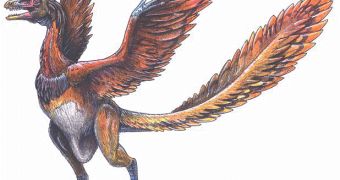The oldest known bird, Archaeopteryx, lived 150 million years ago, but this species and its relatives can be hardly differentiated from dinosaurs. And for about 90 million years on, fossil birds had been toothed, being very different from the modern types. Fossils resembling modern birds started to appear around the demise of the dinosaurs.
But a new research published in the journal "BMC Biology" and made by a team of researchers from the University of Michigan, the University of Chicago, the Centre for Biodiversity Conservation Mexico and Central America, and Boston University, has come with the strongest "molecular clock" analysis, showing that modern birds emerged over 100 million years ago, not 60 million years ago, as fossils discoveries show.
Fossils usually underestimate the time of a group emergence, as they can have gaps and preserve only changes in skeleton, which may appear long after the groups diverged.
But the molecular clock is not very reliable either. It measures random mutations over long time intervals. They are considered to take place at a constant rate.
"If we know, for example, that DNA sequences diverge by an average of 2% every million years, and we determine that two species differ genetically by 10%, we can figure out that they last shared a common ancestor five million years ago. But different lineages can 'tick' at different rates, so applying a single rate to an entire tree could lead to very suspect results," said first author Joseph Brown, a graduate student.
But the team used new compensating methods for determining the rhythm of the clock in the case of modern birds.
"What my colleagues and I did was apply all of these new methods to the problem of the origin of modern birds, with each method making different assumptions about how mutation rate changes across the tree," Brown said.
The analysis only reinforced the divergence between fossil data and what the DNA says: 100 million years for the bird types we see around, not 60.

 14 DAY TRIAL //
14 DAY TRIAL //